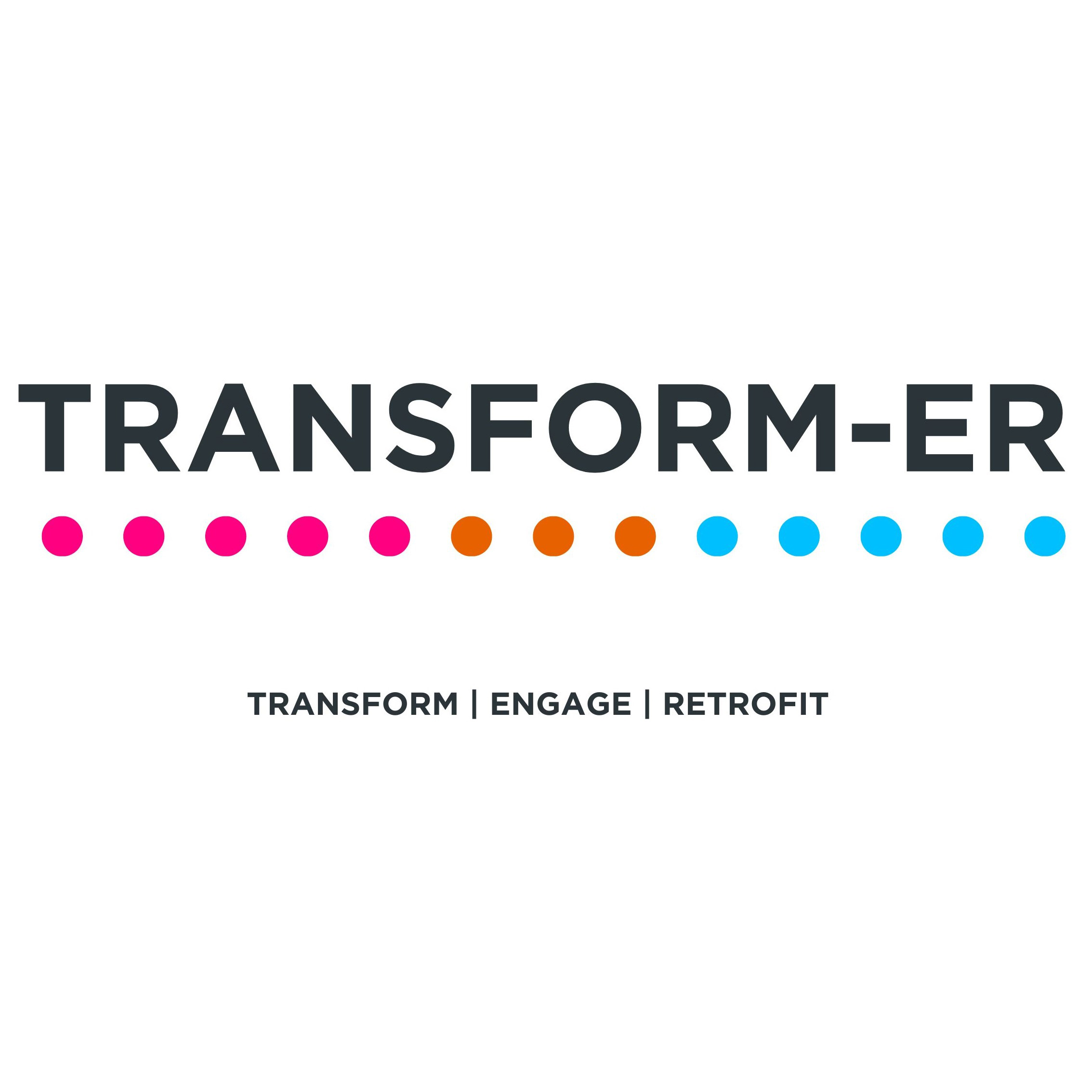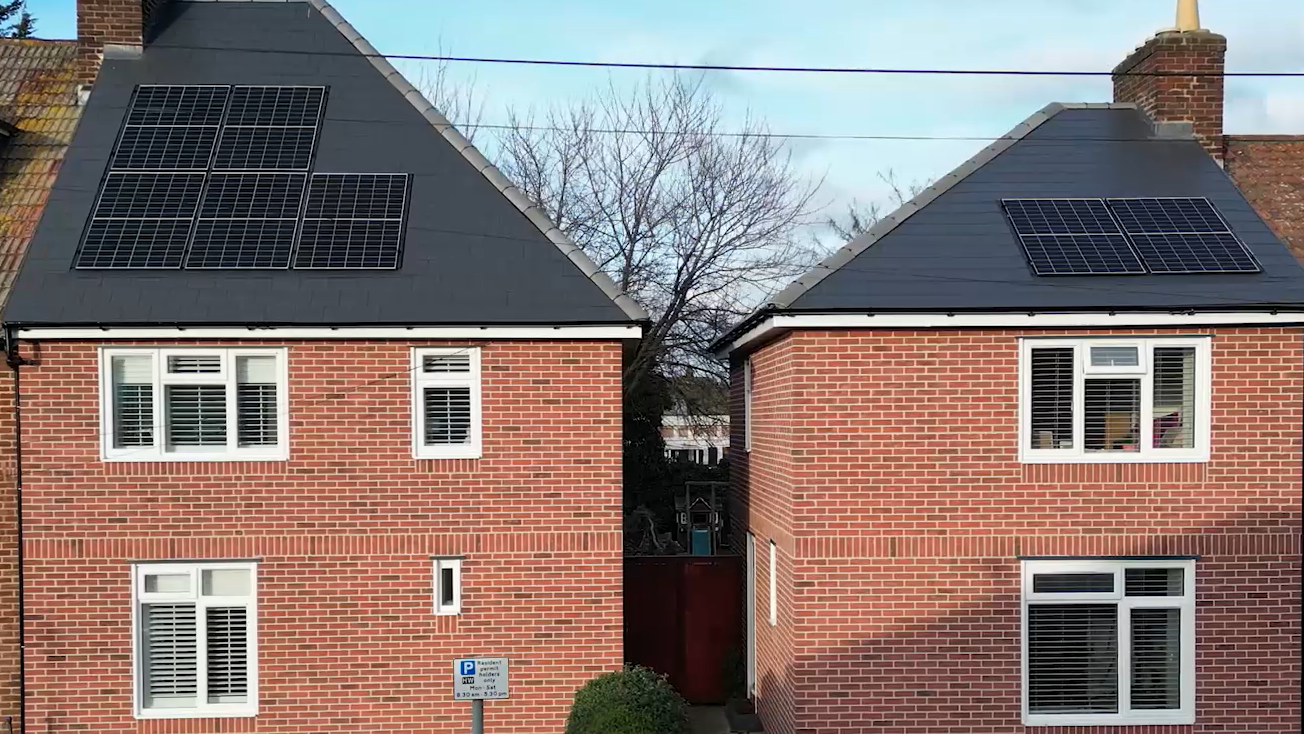Transform-ER (Transform Engage Retrofit)
Revolutionising retrofit to enable one million home upgrades every year.

Project
Transform-ER (Transform Engage Retrofit)
Lead Organisation
Energiesprong UK
URL
Location
UK
Funding
£3.3m
About the project
Transform-ER (Transform.Engage.Retrofit) is a game-changing, consortium-led project funded by Innovate UK that’s tackling the retrofit industry’s biggest barriers to scale, from rising costs and underperformance issues to inadequate financing options and poor collaboration.
13 industry leaders are collaborating to create a cohesive, industrialised sector that uses a standardised end-to-end process to deliver high-performance, cost-effective home improvement solutions. The aim is to enable one million home upgrades every year by 2030, starting in social housing.
They will use the Demand-Develop-Deploy structure to concurrently create new deployment and contract approaches, streamline accreditation processes, prototype products and kits-of-parts, develop digital pipeline tools and a scalable finance mechanism, foster culture change and form a Retrofit Rulebook.
The result? A new industrialised retrofit system and marketplace that upgrades homes and improves lives – open to existing and new delivery partners – tested and ready to launch in 2025, alongside a wealth of learning to be shared widely with the industry.
What has the project successfully delivered?
- Certification review for retrofit products to identify challenges and gaps in the current approvals structure from the perspective of bringing a new retrofit product to the market.
- Identification of common interfaces in retrofit, such as:
- Window and door openings
- Eaves and guttering
- Party walls and wall mounting details
- Definition of requirements such as building regulations, thermal targets, building substrates and typology needs.
- Definition of a methodology for standardising interfaces, enabling product interoperability.
- Development of Culture Change tools for retrofit and a survey to understand baseline culture and trust in the retrofit sector.
- Draft process flows and high-level technical architecture for the portfolio and pipeline assessment platform.
- Research and development into innovative contracting approaches, via interviews, desktop research and case studies.
- Stakeholder engagement.

What has the project achieved?
The first five months of the project have primarily been focussed on research. All partners have been engaged in analysing the current market conditions and understanding options for improvement so we can collectively design a new system that works and overcomes the main barriers to delivering retrofit at scale.
The BRE along with input from manufacturers and other partners, has developed a State of the Market report looking at current accreditation routes. This is now being used to develop ideas of how to improve and streamline, considering rapid testing of components and standardised specifications for details which are pre-approved.
The MTC has been defining the market, through carrying out interviews with stakeholders within and outside the project. The Define the Need report will be a key milestone achieved in September and will set the foundation for the Rulebook being developed throughout the project.
Energiesprong UK (ESUK) and Ambue have carried out one-to-one interviews with all project partners and external landlord stakeholders, and arranged in person engagement events, to understand the biggest barriers to retrofit at scale; considering data, delivery, financing, procurement, resident engagement and costs.
Ambue, MTC and ESUK have finalised approaches to taxonomy, focusing on getting archetyping right. This is a topic with much interest in the wider industry and the project has engaged with the National Retrofit Hub via the archetyping workshop, and a one-to-one introductory session, to ensure we can align with wider industry views.
ESUK has carried out research into innovative contracting and procurement approaches, with literature reviews, interviews, case study interviews and development, and lessons learned with project partners and stakeholders. ESUK has also researched what makes a good project in terms of collaboration and cooperation, including questionnaires with industry participants to understand levels of trust. The initial research is now enabling the development of approaches to overcome the barriers.
Initial sprint cycles have begun for developing pipeline analysis tools. A legal position paper has been drafted, with proposals for how the CIC may be brought to market. An end-user engagement strategy has been drafted and manufacturers are underway with developing their solutions.
Five months into the project, we have successfully brought together key stakeholders across industries to help galvanise the collaboration that’s needed to disrupt and transform the retrofit sector.
Wider stakeholder engagement beyond the project partners has been successful, including collaboration with social housing landlords and other industry players to test new theories and share learning.
Key lessons learned
A key lesson is that a transformed retrofit system must be built on trust and collaboration. Reviews, options appraisals and interviews have demonstrated that scaling programmes for the supply chain should include contracts that are simple for landlords to procure and designed to foster collaboration and continuous improvement over time.
Furthermore, the value proposition of the Transform-ER model – including offsite construction and kits of parts – needs to be communicated clearly and accessible to both landlords and residents.
Next steps
As we progress our work over the next year, we aim to develop software for pipeline analysis, kits-of-parts solutions and a delivery vehicle to implement and scale retrofit programmes for various archetypes. This will be supported by resident engagement, a culture change programme, and a Retrofit Rulebook.
We are looking to engage with retrofit installers and other stakeholders in the supply chain to develop financeable, whole house retrofit solutions.
Ultimately, we are looking to change the retrofit industry to enable a cohesive industrialised sector that delivers high quality retrofits at scale.

